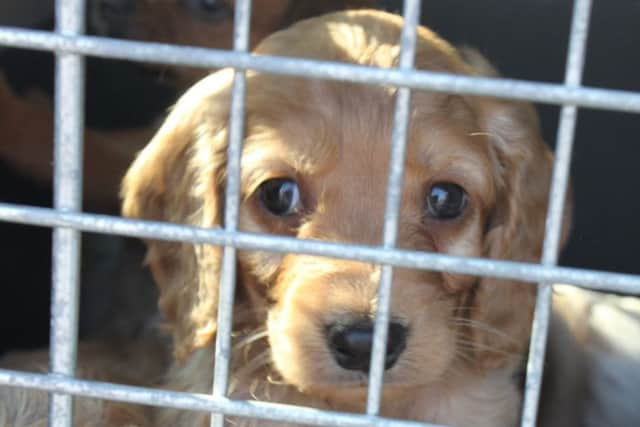The SSPCA: We keep saying it, but the public keep doing it '“ stop buying farmed pups
However, for animal welfare charities like ours, the fallout from Christmas will last well in to next year.
Thousands of people across Scotland will have received a pet for a present on Christmas morning and this flies in the face of advice the Scottish SPCA has been offering for decades. We have a long-standing policy not to rehome young animals during the festive period.
Advertisement
Hide AdAdvertisement
Hide AdAs many people will discover in the days and weeks ahead, bringing an animal into the home comes with a hell of a lot of responsibility. Many will find it too much to handle and organisations like ours are left to pick up the pieces when that happens. The ‘Christmas rush’ for pets puts pressure on the Scottish SPCA in more ways than one.


Firstly, the obvious implications of having to deal with pets which are given up or – worse – abandoned. For at least the first quarter of 2019, our staff will be busy caring for animals purchased on a whim by people who have not given serious consideration to what they are taking on.
Secondly, the spike in demand for pets near Christmas fuels illegal puppy farming.
Our #SayNoToPuppyDealers campaign, which aims to bring this barbaric trade to an end, has gathered steam in 2018 but it is a demand-driven business and supply inevitably increases to meet this.
The trade puts profits before welfare and puppies bred on these farms often have medical or behavioural problems.
Our #SayNoToPuppyDealers campaign has secured the support of dozens of MSPs and more than 7,500 members of the public, but the key to bringing the trade to a halt for good is for each and every person to rigorously question where a puppy is from before they buy it. Responsible purchases will ultimately lead to responsible breeding.
There are tell-tale signs that a puppy is from a farm. For example, a seller may be evasive when it comes to questions on the mother and comes up with excuses to avoid a potential buyer visiting the house where the pups supposedly live.
The tireless efforts of everyone involved in the campaign has brought some successes and in 2019 the campaign will build on these to make further inroads into the trade.
Advertisement
Hide AdAdvertisement
Hide AdBy the time next Christmas comes around, I hope we are in a position where we can see a real tangible decline in the number of puppies purchased from farms.
For that to come to fruition, the onus is on the general public. Our advice is simple. Don’t buy a pet at Christmas.
If anyone must do so, ask the right questions, shop responsibly and do not add any more fuel to the fire that is the illegal farming of puppies.
Undercover chief inspector of the Scottish SPCA Special Investigations Unit.